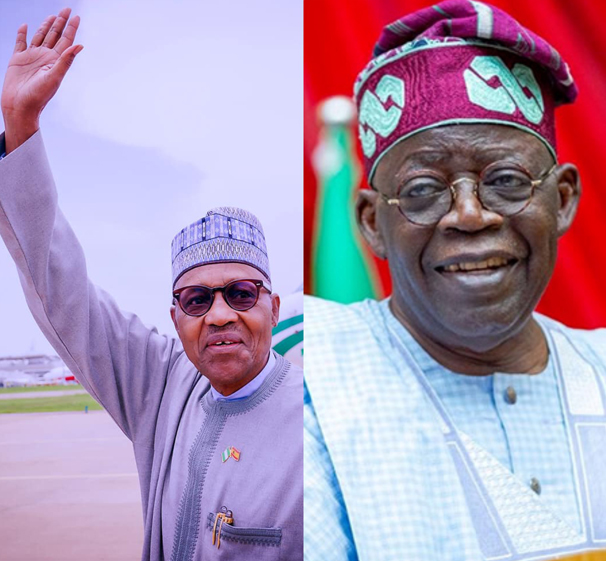
Credit: Punchng.Com
The Federal Government of Nigeria through the National Bureau released Multidimensional Poverty Index (MPI) report in Nov 2022, which shows that 133 million people are multidimensionally poor. Because of the harsh economy and poor infrastructure, many of the youth under the Buhari-led administration have been forced to take to crimes and criminality and live in degradable conditions.
Despite a plethora of programmes targeted at the youth, there are indications that the programmes are not yielding the desired results. As a last resort, the youths have been left with the option of leaving the country in large numbers in an attempt to look for means of survival, even in places or countries that are facing other peculiar problems.
However, in a manner to show that Buhari sought the emancipation of the youth, speaking through his then Senior Special Adviser on Media and Publicity, Mr Femi Adesina, Buhari boldly expressed that his administration embarked on massive youth development.
According to Adesina in a State House Press Release, 500,000 youths enrolled in two batches in N-Power between 2016 and 2020, receiving N30,000 monthly with the enrollment of 3rd batch of 400,000 in progress.
He added that the National Youth Service Corps (NYSC) was also part of what the regime counted as an achievement, having the allowance of corps members increased from N19,600 to N33,000, which captured about 300,000 beneficiaries every month.
Besides, according to the government, to fund businesses owned by young Nigerian, N75 billion was pumped into Nigerian Youth Investment Fund (NYIF), as the government also put in place Special public works programme to provide three months of employment for 774,000 young Nigerians across the country. In its efforts to develop technology and entrepreneurship skill among the youth, the Buhari government said it injected $20 million into Nigerian Tech innovators and Entrepreneurs managed by the Bank of Industry (BOI).
Knowing that youths can also thrive in the agricultural sector, the government was said to have embarked on the National Young Farmers Scheme, the initiative of the National Agricultural Land Development Authority (NALDA) to engage two youths in each local government area.
Adesina also said that the Central Bank of Nigeria (CBN), introduced Accelerated Agricultural Development Scheme (AADS) to engage a minimum of 370,000 youths in Agricultural production across the country over the next three years.
There was the Creative Industries Financing Initiative (CIFI), an initiative of the CBN in collaboration with the Bankers’ Committee to make available single-digit financing for the creative sector as part of efforts to boost job creation in Nigeria.
“Despite a plethora of programmes targeted at the youth, there are indications that the programmes are not yielding the desired results. As a last resort, the youths have been left with the option of leaving the country in large numbers in an attempt to look for means of survival, even in places or countries that are facing other peculiar problems.“
Among others, the government was said to have introduced Digital Skills Entrepreneurship Employability Leadership, the Mass Housing Strategy of the Nigerian Economic Sustainability Plan (NESP), the SM Solar Connection Programmes, the Energizing Education Programme (EEP), Presidential Youth Empowerment Scheme (P-YES) and many more.
However, observers expressed that the execution of the N-power programme execution leaves much to desire, as the programme is just a temporary thing; after two years, the beneficiaries are thrown back into the job market. In addition, the stipend given to them for the job done that can hardly take them home.
Bosola Adeniran, a graduate of agricultural science, who was sent to teach in a school, said she had to quit the programme when payments of stipend stopped after putting in fourteen months into the programme.
Moreover, only very few of the beneficiaries are deployed to sectors where real skills can be latched upon for future gains. Instead, the majority were posted to schools where they just fill the gaps, teaching subjects they did not study. One would expect more people to be posted to places like technology, Agriculture and the Health sector, where real skills can be acquired.
Several intervention programmes by the government lack cohesion because of the lack of data to ensure that there is a good spread of beneficiaries across the country and that good monitoring ensures that contractors don’t just pocket allocation meant for the execution of the programmes. Some youths have also alleged that the programmes were skewed towards benefiting the Northern parts of the country as very few of the programmes were evident in many parts of the South, particularly the West.
The government boasts of employment for 774,000, one would ask: what is the benefit of a three-month employment in one of the programmes when there are bills to be paid and there is need for survival?
Analysts also argued that only very few people benefited from the NYIF scheme for which a lot of money was earmarked.
Observers believe that the new government should create an enabling environment for youths, addressing why they are leaving the country in droves.
Mrs Aderonke Elizabeth, a teacher, believes the government should embark on massive industrialization to create employment for youths.
According to Binzak Azeez of the Faculty of Law, Obafemi Awolowo University, “Government cannot employ all its citizens, but it must create job opportunities and provide essential services for all. Job opportunities are created when government invests in technological, educative and medical research.”
When he was campaigning, as well as in his acceptance speech, Senator Bola Ahmed Tinubu, promised the youth that they shall be finishing their courses of study in record time. That he will create an atmosphere where they will be prosperous; that he will introduce student loans to enable them cater to their educational needs, and that unemployment shall be a thing of the past.
Young Nigerians are definitely in for a good time if campaign promises are anything to go by.
The youth, as they say, are the future of a nation; hence, if they are neglected, such a country may be in limbo. If the youth are uncared for, this may not augur well for a country that aims to frontally combat insecurity.
The in-coming government of President Bola Tinubu should go beyond rhetoric and window dressing and tackle the problems facing the youth frontally.
What is your thought on this story?
Kindly Like* Comment *Follow * share.





















